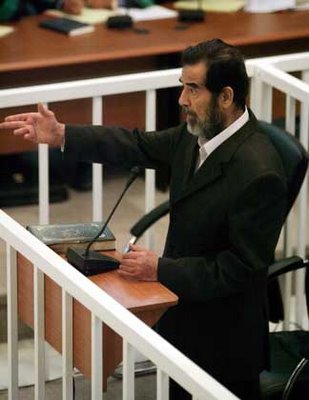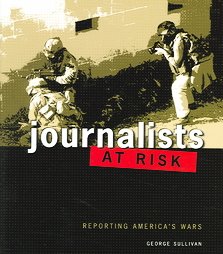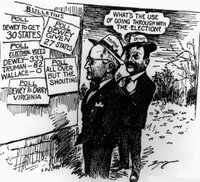
The
United Nations General Assembly is meeting to debate the state of the world. Topics are expected to include international peace keeping, the environment, the Middle East, nuclear proliferation, UN reform and the next secretary-general. Each assembly puts in question the effectiveness of this world body.
UN members have different political agendas. Small countries tend to follow the big ones through the World Bank, economic aid and military protection. The UN, despite its successes in some areas, remains a lame duck in a world where there is competition for superiority. The US, the biggest member has a history of deep disagreement with the UN on many issues like Iran and Kyoto accord. The UN is working in a world where there are political alliances that don't often see eye to eye. The US and its allies have enough power to impose their will on the world stage. There are other organisations like Non-aligned movements whose members are good at drafting resolutions without implementing them. All such states converge at the UN, but there they have more what to disagree than what to agree upon. At best the UN is just a forum where no one is forcibly bound to any signed agreement.
For the UN to be effective, member states should built mutual trust and cooperation. The UN doesn't have the power to change governments. When regional grouping like the Arab League, the African Union become able to implement their resolutions effectively, then it will become easy for UN member states to agree on global policies. Today many states have political commitment with countries far from their borders. The relations with their neighbours are mainly based on guarding the borders from infiltrators rather than deepening political cooperation.
As there are many corrupt governments, whatever aid the UN provides will be futile. As for conflicts, it's up to the parties involved to resolve them peacefully. The UN can't step in any area without the agreement of the governments concerned. All it can do is to impose sanctions. This is not a radical solution, since only the people who suffer from them as it was the case in Iraq.
The UN despite its failure to resolve long standing problems in areas like the Middle East has had some success in areas like East Timor. The world can be worse without it. If it can't solve all political problems, at least, it limits their worsening. Without UN intervention in Lebanon, this could have turned into rubble, dragging the whole region into a catastrophic war. The UN should reshape itself to have more credibility instead of remaining a forum for debates leading nowhere.
































